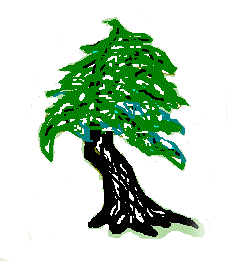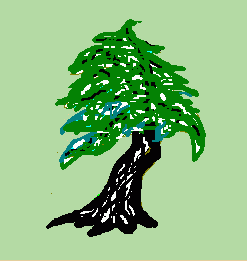
ETIQUETTE

Etiquette concerns the rules for backpacking in the wilderness. Besides the beauty, the reason people work so hard to get into the back country is because they have certain expectations as to what the ambiance of
the experience should be, in terms of the relations with other people and the affect that people have and have had on the backpacking environment. Many people who go into the back country would like to experience it as if
they were alone, and as if there had never been anyone there before them. Many of the rules and etiquette of backpacking are established by the forest service and some are more or less understood.
A rule of thumb should be to leave any camp site cleaner than one has found it. Any garbage, waste or refuse such as left over food, cooking oil or fuel should not be buried. Only fecal matter, wash water and fish remains should be buried. No garbage of any kind to include such things as match sticks, shoe laces, candy wrappers, fish line or plastics should be left in the environment. Trash should not be left in fire pits. Everything carried in should be carried out. If possible, trash that has been left by others should be cleaned up and
carried out if possible, which is possible because one usually leaves with less weight than one has carried in. This trash can be bottles and cans that have been out there for more than 20 years. This is especially doable for horse campers. All fecal waste and waste dish or clothes water should be buried at least 100 feet from any open water source.
Dishes or clothes should not be washed in lakes or streams. Clothes may contain chemicals and sulfates from previous washings. Dishes contain food residues. Clothes and dishes should be washed and rinsed with pan water away from water sources. Only biodegradable and organic soaps should be used if any soap is used at all. Hanging clothes for drying should be discrete so as to not detract from the beauty of the environment for others.
No damage of any kind should be done to trees and shrubbery such as for the purposes of building fires, putting nails in trees or any other reason. Rocks, logs and mosses should not be disturbed or any action taken that defaces the natural beauty of the environment in any way. Fires should not be started without the use of fire rings made of rocks. Fires are dangerous in high winds and should be limited accordingly. Fires should only be made with a large clearing surrounding them. Fires should be made only when there is ample available ground fuel is available. Fires should never be left unattended. Fires should be extinguished with certainty before leaving camp. Fires should be put out with water and covered with dirt and rocks placed on top for added safety from wind.
People camping next to lakes should camp out of sight
of the shore or in a way camouflaged whenever possible, keeping in mind that others on the opposite shore might like a pristine view.
When hiking on hills, people coming up hill should have the trail right away, considering the difficulty of carrying weight up hill.
Camping or hiking should not take place in areas in which it could be considered to disturb wild life in
any way, such as bird nesting areas.







![]()
![]()